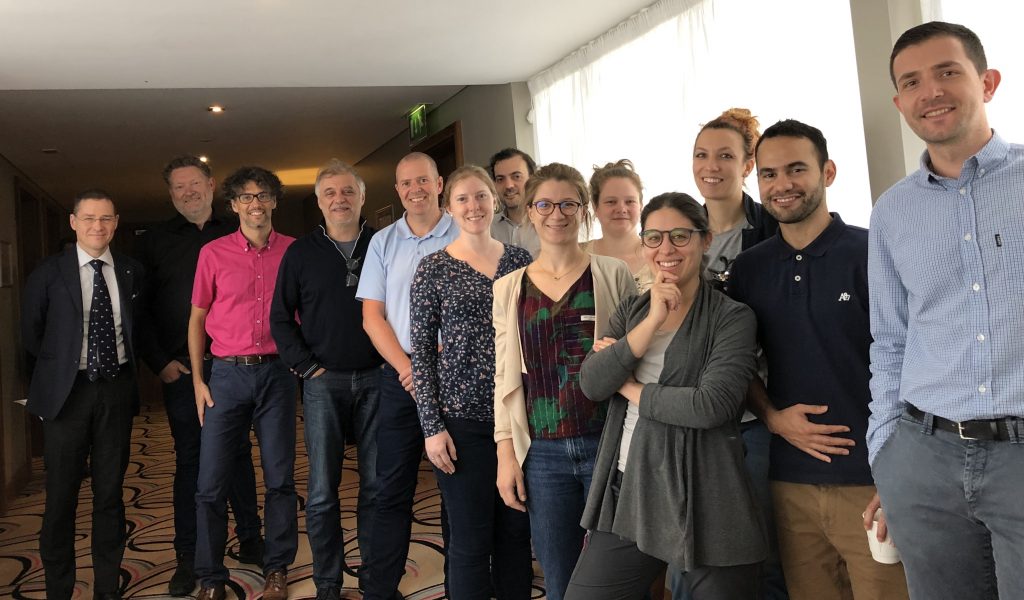StepUP is now underway!

We are delighted to announce that StepUP, a new project funded by the EU Horizon 2020 research and innovation programme, is now underway. The project team met earlier this summer in Dublin, on 6-7 August, for their initial kick-off meeting.
The project is founded on the core principle that deep renovation will be key in drastically reducing energy demand and achieving the EU vision of a decarbonised building stock by 2050. While technology to achieve this reduction is available on the market today, shallow retrofits persist with low impacts on energy consumption, due to a variety of barriers that make deep renovation a risky investment. To transform the market and increase the rate of renovation across Europe, it needs to become an attractive, low-risk investment.
StepUP will develop a new process for deep renovation geared towards decarbonisation, with fast design to operation feedback loops to minimise the performance gap, reduce investment risk and maximise value. The project will deliver technologies to minimise disruption to building occupants, which will be interconnected and interoperable to maximise impact on energy, costs, IEQ and user comfort. The StepUP iterative approach to renovation will reduce financial barriers and make decarbonisation of existing buildings a reliable, attractive investment.
The project is centred around five core objectives:
- Make renovation more attractive and reliable
- Reduce the performance gap to <10%
- Minimise time on site to <40%
- Optimise renovation investments
- Accelerate the renovation market
The project, coordinated by IES, will take a multi-disciplinary approach, drawing together partners from a range of backgrounds, including: technology manufacturers, owners, contractors, researchers, designers and consultants on IEQ, M&V and energy, stakeholders engagement, innovation, business modelling, Energy Performance Contracting and technology standardisation.
The StepUP renovation methodology and its enabling solutions/technologies will be developed and tested through three pilot sites, two real and one virtual, representing a variety of climates and building types – a public school building in Hungary, a multi-apartment housing building in Spain, and a virtual office building in the UK.
 This project has received funding from the European Union’s Horizon 2020 research and innovation programme under grant agreement no. 847053.
This project has received funding from the European Union’s Horizon 2020 research and innovation programme under grant agreement no. 847053.
This website reflects only the author’s views. The European Climate, Infrastructure and Environment Executive Agency is not responsible for any use that may be made of the information it contains.
